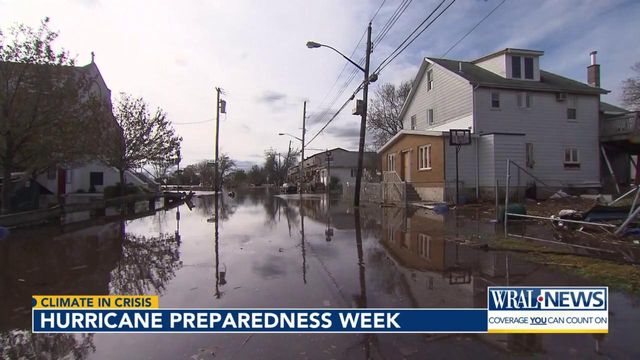Inland homes at risk for high winds, flooding during hurricane season. Here's what you can do now.
Forecasters say the 2024 Atlantic hurricane season could be one of the most active on record and officials are encouraging residents to start preparing now.
- Hurricane season begins June 1. Here's what every North Carolina resident needs to know
- Make a family emergency plan: Be prepared when severe weather arrives
John Cangialosi is a senior hurricane specialist at the National Hurricane Center in Miami, Florida, and says warming ocean temperatures could be a factor.
"In some areas, we are seeing ocean temperatures hotter than we've ever recorded, which is alarming," Cangialosi said. "It's very connected to how strong the storms could get."
Forecasters also anticipate a La Niña climate pattern could increase Atlantic hurricane activity by weakening wind shear over the Caribbean Sea and tropical Atlantic basin.
"That allows hurricanes to grow more vertically straight up and down, and that means they have a chance to be stronger and more frequent," Cangialosi said.
The time to prepare is before a storm forms.
Experts recommend doing an insurance check-up before June 1. Keep in mind that there’s a 30-day waiting period for most flood insurance.
Officials are encouraging homeowners across the state to check their home’s flood risk on the state’s free portal.
The biggest problem that hurricanes bring – in Raleigh or anywhere in the inland portions of North Carolina – is flood risk. Beyond a tropical system itself, storms can bring other flooding risks, from rising rivers and focused, heavy rain dumping over an area.
Some models show wind risk areas are expanding in the state.
The Insurance Institute for Business & Home Safety (IBHS) released its 2024 Rating the States report, which evaluates building code adoption, enforcement and contractor licensing in 18 states along the hurricane coast from Texas to Maine. North Carolina slid in the rankings due to a veto-override last year that placed a moratorium on new building code adoption through 2031.
Ian Giammanco is data analytics director and a lead research meteorologist at the IBHS Research Center and says building codes play an important role in protecting homes from extreme weather.
"All of the science that we've learned over the past few decades about how we should build to resist the winds we see in hurricanes every year is contained within these codes, so it's really important that they're adopted regularly and that they are enforced with consistency," Giammanco said.














